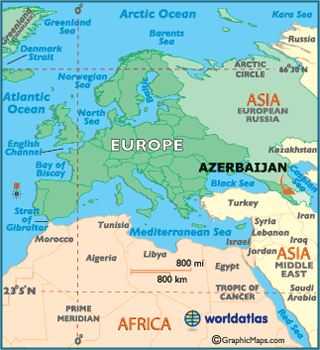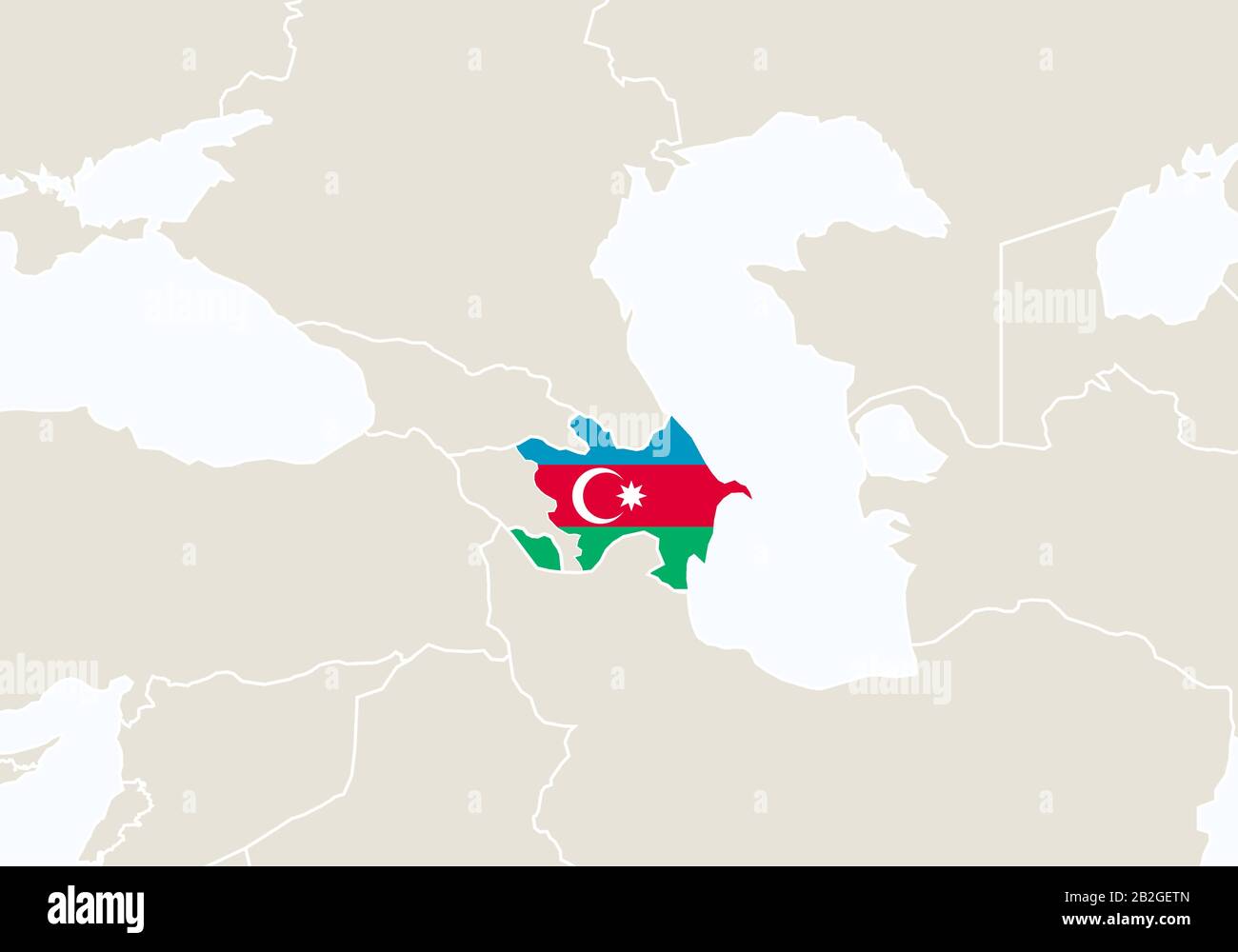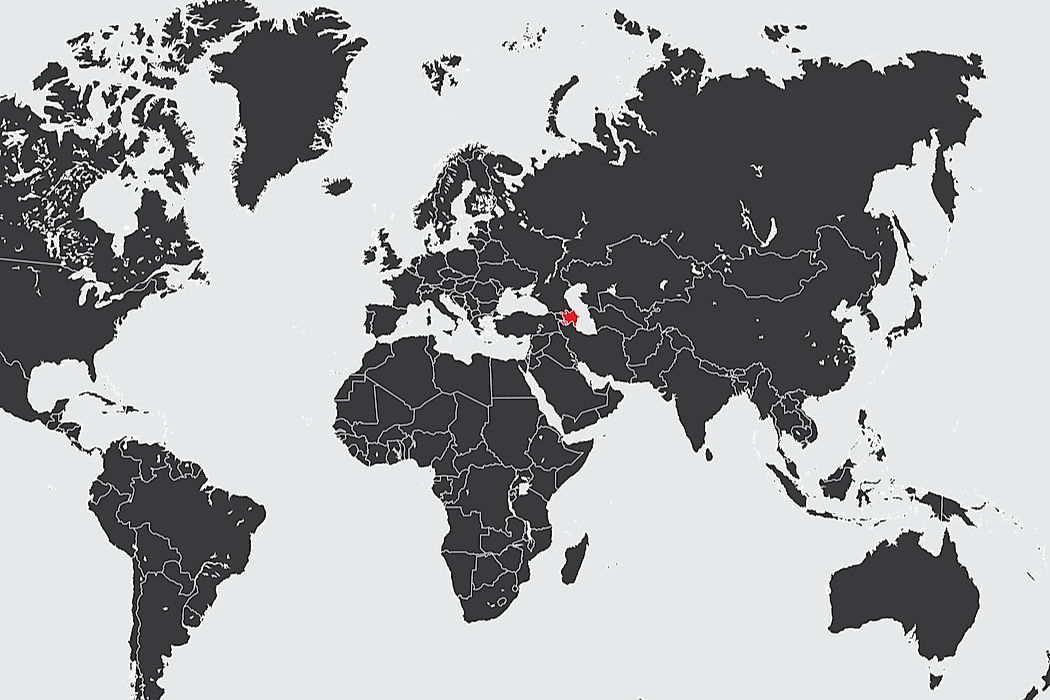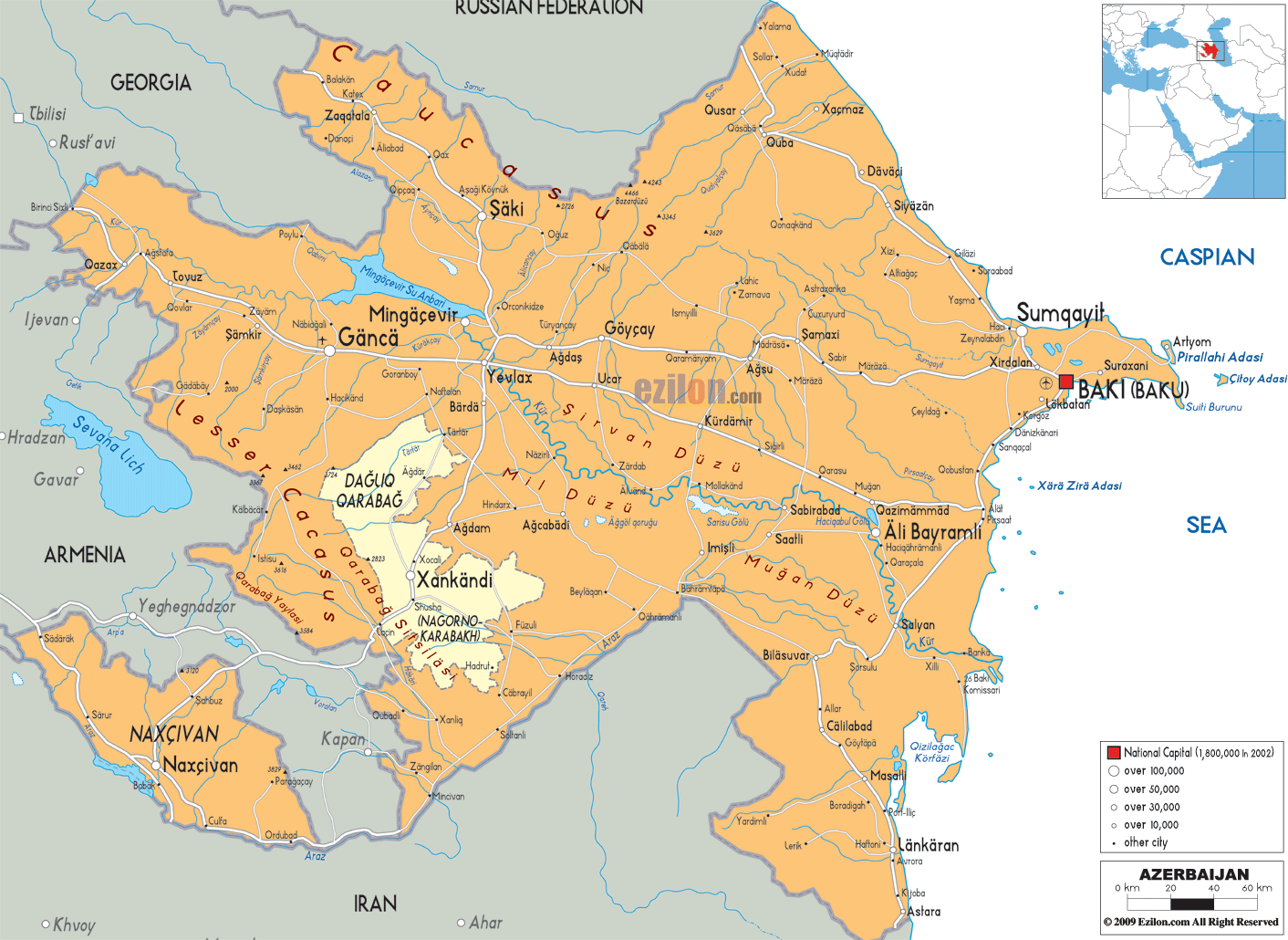Azerbaijan’s Position in Europe: A Geographical and Historical Perspective
Related Articles: Azerbaijan’s Position in Europe: A Geographical and Historical Perspective
Introduction
In this auspicious occasion, we are delighted to delve into the intriguing topic related to Azerbaijan’s Position in Europe: A Geographical and Historical Perspective. Let’s weave interesting information and offer fresh perspectives to the readers.
Table of Content
Azerbaijan’s Position in Europe: A Geographical and Historical Perspective

Azerbaijan, a transcontinental country located at the crossroads of Europe and Asia, holds a unique position on the world map. Situated on the western shores of the Caspian Sea, it shares borders with Russia, Georgia, Armenia, Iran, and Turkey, making it a vital link between the Caucasus region, Central Asia, and the Middle East. Understanding Azerbaijan’s geographical location within the European context is crucial for appreciating its historical development, cultural influences, and contemporary political and economic landscape.
A Crossroads of Cultures and Civilizations:
Azerbaijan’s strategic location has played a pivotal role in shaping its cultural and historical identity. Throughout history, the country has served as a bridge between East and West, facilitating the exchange of ideas, goods, and people. This exchange has resulted in a rich and diverse cultural tapestry, blending elements of Persian, Turkish, Russian, and European influences.
Historical Significance:
- The Silk Road: Azerbaijan was a vital node on the ancient Silk Road, connecting China to Europe via Central Asia. This trade route brought prosperity and cultural exchange to the region for centuries.
- The Caucasian Albanian Kingdom: In the early centuries AD, the territory of present-day Azerbaijan was home to the Caucasian Albanian Kingdom, a Christian kingdom with a unique cultural heritage.
- The Safavid Empire: During the 16th and 17th centuries, Azerbaijan was a crucial part of the Safavid Empire, a powerful Persian dynasty that extended its influence across the Middle East and Central Asia.
- The Russian Empire: In the 19th century, Azerbaijan was incorporated into the Russian Empire, leading to significant economic and social changes.
The Modern Era and Azerbaijan’s European Ties:
Following the collapse of the Soviet Union in 1991, Azerbaijan gained independence and embarked on a new chapter in its history. The country has actively pursued closer ties with Europe, emphasizing its cultural and historical connections to the continent. This engagement has manifested in several ways:
- Membership in International Organizations: Azerbaijan is a member of the Council of Europe, the Organization for Security and Cooperation in Europe (OSCE), and the European Bank for Reconstruction and Development (EBRD), reflecting its commitment to European values and cooperation.
- Economic and Trade Ties: Azerbaijan has strong economic ties with European countries, particularly with Turkey and the European Union. The country is a major exporter of oil and gas to Europe, making it a crucial energy partner.
- Cultural Exchange: Azerbaijan has a vibrant cultural scene, with close ties to European institutions in areas like music, art, and literature. The country actively participates in European cultural festivals and events.
The Role of Geography in Contemporary Challenges:
Azerbaijan’s strategic location also presents certain challenges:
- Regional Conflicts: The unresolved Nagorno-Karabakh conflict with Armenia has had a significant impact on the country’s stability and development.
- Energy Security: Azerbaijan’s role as an energy supplier to Europe makes it a target for geopolitical tensions.
- Environmental Issues: The Caspian Sea, a vital resource for Azerbaijan, faces environmental challenges such as pollution and overfishing.
Exploring Azerbaijan’s European Identity:
While Azerbaijan’s geographical location places it at the crossroads of Europe and Asia, the country’s cultural heritage and contemporary aspirations clearly demonstrate its strong ties to Europe. Its membership in key European organizations, economic partnerships, and cultural exchanges solidify its position as an important player in the European sphere.
Understanding Azerbaijan’s European Context:
By analyzing the historical, cultural, and political factors that have shaped Azerbaijan’s relationship with Europe, we gain a deeper understanding of the country’s unique identity and its role in the global landscape. This understanding is crucial for fostering cooperation, promoting peace, and advancing shared interests between Azerbaijan and Europe.
FAQs
Q: Is Azerbaijan a European country?
A: Azerbaijan is a transcontinental country, located at the crossroads of Europe and Asia. While geographically situated in Asia, Azerbaijan shares cultural, historical, and political ties with Europe.
Q: What are the main reasons for Azerbaijan’s close relationship with Europe?
A: Azerbaijan’s close relationship with Europe stems from its historical connections, cultural influences, strategic location, and economic ties. The country’s membership in European organizations, its role as an energy supplier, and its cultural exchanges solidify its engagement with Europe.
Q: What are the challenges facing Azerbaijan in its relationship with Europe?
A: Azerbaijan faces challenges related to regional conflicts, energy security, and environmental issues. The Nagorno-Karabakh conflict with Armenia, geopolitical tensions surrounding energy resources, and the environmental concerns of the Caspian Sea are key issues that influence Azerbaijan’s relationship with Europe.
Tips for Exploring Azerbaijan’s European Connection:
- Visit Baku, the capital city: Explore the city’s historical landmarks, museums, and cultural institutions to gain a deeper understanding of Azerbaijan’s European influences.
- Attend cultural events: Participate in concerts, festivals, and art exhibitions to experience Azerbaijan’s vibrant cultural scene and its connections to European artistic traditions.
- Learn about Azerbaijani history: Research the country’s historical ties to Europe, including its role in the Silk Road and its interactions with European powers.
- Engage in discussions: Talk to local people, academics, and experts to gain insights into Azerbaijan’s current relationship with Europe and its future aspirations.
Conclusion
Azerbaijan’s position in Europe is a complex and multifaceted issue, shaped by historical, cultural, and political factors. While geographically situated in Asia, the country’s close ties to Europe are undeniable. Its membership in key European organizations, its economic partnerships, and its active participation in cultural exchanges highlight its strong connection to the continent. Understanding Azerbaijan’s European context is crucial for fostering cooperation, promoting peace, and advancing shared interests between Azerbaijan and Europe.








Closure
Thus, we hope this article has provided valuable insights into Azerbaijan’s Position in Europe: A Geographical and Historical Perspective. We thank you for taking the time to read this article. See you in our next article!
